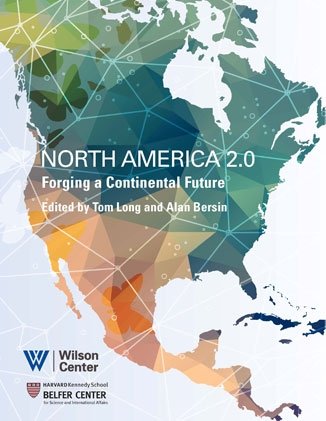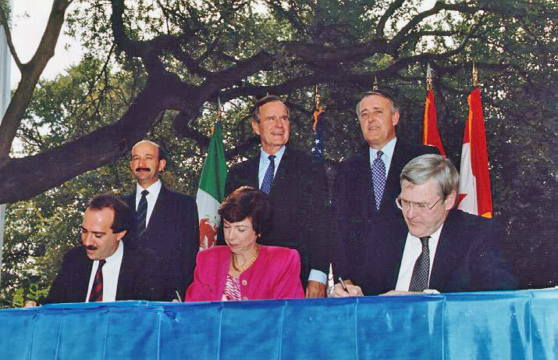The FTA, Not Such a Happy Story
Someday, someone will write the objective history of the US-Colombia free trade agreement For the US, the history is not a happy one.
North America has survived a tumultuous three decades since the implementation of the North American Free Trade Agreement. What characterizes our shared region today? What kind of region can advance our shared interests and well-being over the next generation? Published by the Wilson Center, North America 2.0 | Forging a Continental Future offers an agenda for how the region’s leaders can forge inclusive and effective strategies that ensure North America’s next decades build upon past successes—while addressing serious shortcomings.
The Inter-American Dialogue's Energy, Climate Change & Extractive Industries program director Daniela Stevens co-authored a chapter with Mariana Sánchez Ramirez in the volume titled "Making the Environment a Priority in North America? Evidence from the USMCA." In this chapter, Stevens and Sánchez emphasize the benefits of building greater environmental cooperation in North America; they note that while the US-Mexico-Canada Agreement (USMCA) took some preliminary steps in this direction, it fell far short in advancing North American cooperation on climate change.
Someday, someone will write the objective history of the US-Colombia free trade agreement For the US, the history is not a happy one.
How significant of a priority should strengthening NAFTA be as compared to other trade agreements?
Over the last two decades, Brazil’s trade policy has centered on two main negotiations. Progress on both fronts, however, has been limited.
 The Wilson Center
The Wilson Center

